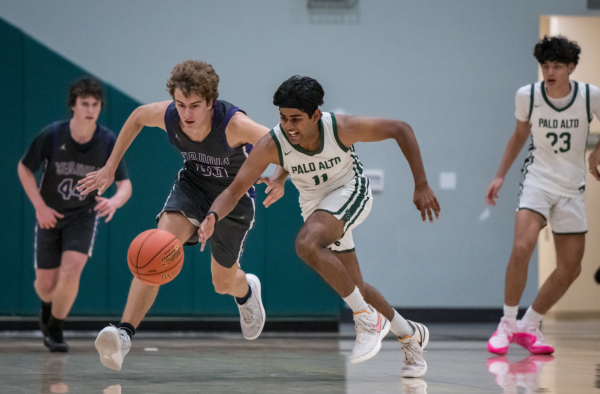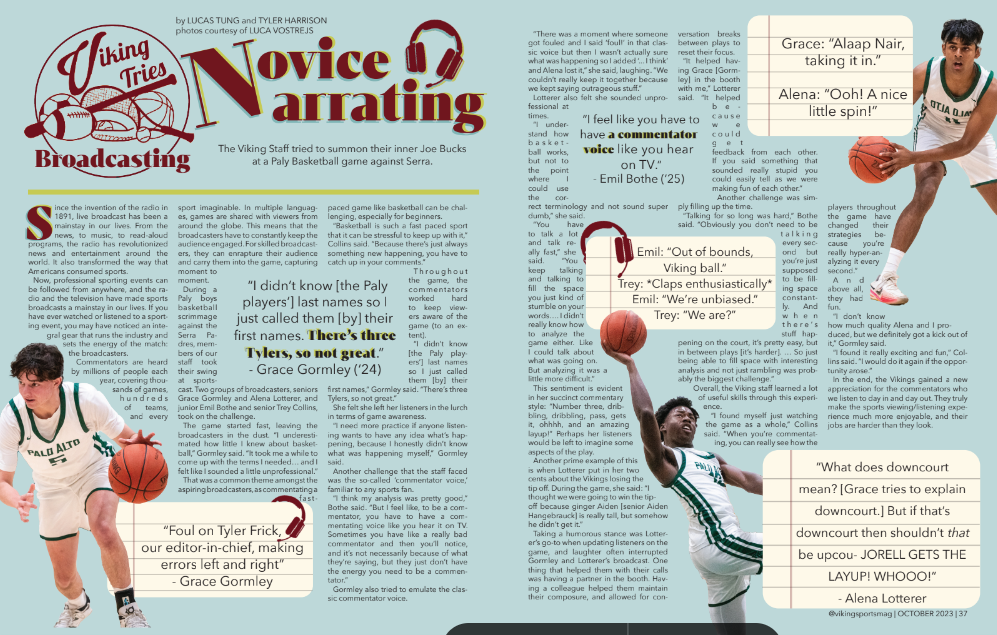Since the invention of the radio in 1891, live broadcast has been a mainstay in our lives. From the news, to music, to read-aloud programs, the radio has revolutionized news and entertainment around the world. It also transformed the way that Americans pursued sports. Previously, sports fans had to buy tickets and attend a game in the stadium if they wanted to see their favorite athletes. But in 1921, for the first time ever, the world was able to follow a live sporting event from their homes. The Westinghouse KDKA station in Pittsburgh, Pennsylvania aired a boxing match between Johnny Ray and Johnny Dundee, the first ever sporting broadcast.
Today, most professional sporting events can be followed from anywhere, and the radio and the television have made sports broadcasts a mainstay in our lives. If you have ever watched or listened to a sporting event, you may have noticed an integral gear that runs the industry and sets the energy of the match: the broadcasters.

Commentators are heard by millions of people each year, covering thousands of games, hundreds of teams, and every sport imaginable. In multiple languages, games are shared with viewers from around the globe. This means that the broadcasters have to constantly keep the audience engaged. For skilled broadcasters, they can enrapture their audience and carry them into the game, capturing moment to moment.
Radio broadcasting is super difficult, and it takes so much practice to be good at. However, video broadcasting is difficult because of the added challenge of when not to speak. When the listener can also see the game, more is not always better. If you always include an excessive amount of information that the viewer can simply see with their eyes, you become annoying, and viewers will want to put you on mute to just analyze the game themselves. You have to become a facilitator of the game, and not an encyclopedia. Both types of commentating are extremely challenging, and take decades to perfect.
During a Paly boys basketball scrimmage against the Serra Padres, members of our staff took their swing at sportscast. Two groups of broadcasters, seniors Grace Gormley and Alena Lotterer, and junior Emil Bothe and senior Trey Collins, took on the challenge.
The game started fast, leaving the broadcasters in the dust. “I underestimated how little I knew about basketball,” Gormley said. “It took me a while to come up with the terms I needed… and I felt like I sounded a little unprofessional.”
That was a common theme amongst the aspiring broadcasters, as commentating a fast-paced game like basketball can be challenging, especially for beginners.
“Basketball is such a fast paced sport that it can be stressful to keep up with it,” Collins said. “Because there’s just always something new happening, you have to catch up in your comments.”
Throughout the game, the commentators worked hard to keep viewers aware of the game (to an extent).
“I didn’t know [the Paly players’] last names so I just called them [by] their first names,” Gormley said. “There’s three Tylers, so not great.”
She felt she left her listeners in the lurch in terms of game awareness.
“I need more practice if anyone listening wants to have any idea what’s happening, because I honestly didn’t know what was happening myself,” Gormley said.
Another challenge that the staff faced was the so-called ‘commentator voice,’ familiar to any sports fan.
“I think my analysis was pretty good,” Bothe said. “But I feel like, to be a commentator, you have to have a commentating voice like you hear it on TV. Sometimes you have like a really bad commentator and then you’ll notice, and it’s not necessarily because of what they’re saying, but they just don’t have the energy you need to be a commentator.”
Gormley also tried to emulate the classic commentator voice.
“There was a moment where someone got fouled and I said ‘foul!’ in that classic voice but then I wasn’t actually sure what was happening so I added ‘… I think’ and Alena lost it,” she said, laughing. “We couldn’t really keep it together because we kept saying outrageous stuff.”
Lotterer also felt she sounded unprofessional at times.
“I understand how basketball works, but not to the point where I could use the correct terminology and not sound super dumb,” she said.
“You have to talk a lot and talk really fast,” she said. “You keep talking and talking to fill the space you just kind of stumble on your words…. I didn’t really know how to analyze the game either. Like I could talk about what was going on. But analyzing it was a little more difficult.”
This sentiment is evident in her succinct commentary style: “Number three, dribbling, dribbling, pass, gets it, ohhhh, and an amazing layup!” Perhaps her listeners would be left to imagine some aspects of the play.
One good example of this is when Lotterer put in her two cents about the Vikings losing the tip off. During the game, she said: “I thought we were going to win the tip-off because ginger Aiden [senior Aiden Hangebrauck] is really tall, but somehow he didn’t get it.”
Taking a humorous stance was Lotterer’s go-to when updating listeners on the game, and laughter often interrupted Gormley and Lotterer’s broadcast. One thing that helped them with their calls was having a partner in the booth. Having a colleague helped them maintain their composure, and allowed for conversation breaks between plays to reset their focus.
“It helped having Grace [Gormley] in the booth with me,” Lotterer said. “It helped because we could get feedback from each other. If you said something that sounded really stupid you could easily tell as we were making fun of each other.”
Another challenge was simply filling up the time.
“talking for so long was hard,” Bothe said. “Obviously you don’t need to be talking every second but you’re just supposed to be filling space constantly. And when there’s stuff happening on the court, it’s pretty easy, but in between plays [it’s harder]. … So just being able to fill space with interesting analysis and not just rambling was probably the biggest challenge.”
Overall, the Viking staff learned a lot of useful skills through this experience.
“I found myself just watching the game as a whole,” Collins said. “When you’re commentating, you can really see how the players throughout the game have changed their strategies because you’re really hyper-analyzing it every second.”
And above all, they had fun.
“I don’t know how much quality Alena and I produced, but we definitely got a kick out of it,” Gormley said.
“I found it really exciting and fun,” Collins said. “I would do it again if the opportunity arose.”
In the end, the Vikings gained a new appreciation for the commentators who we listen to day in and day out. They truly make the sports viewing/listening experience much more enjoyable, and their jobs are harder than they look.





